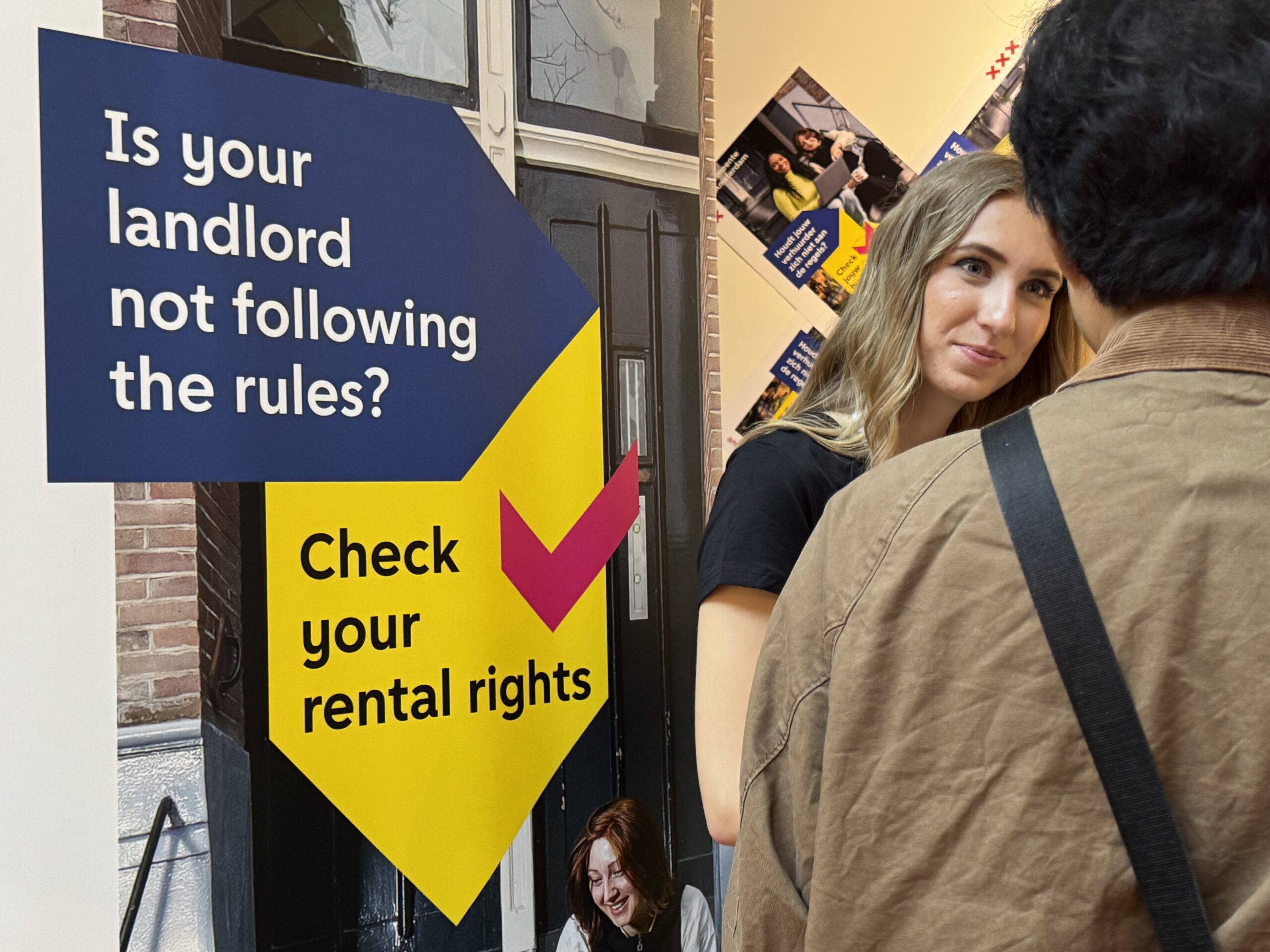Every landlord renting out a house in the mid-market segment in Amsterdam will need a permit from July 1, according to a new city ordinance.
The permit scheme will mean that the city will have a register of landlords who are active in the segment and can check whether the income level of tenants matches the homes.
One of the issues in affordable housing in the Netherlands is “crooked living” or scheefwonen – a word once applied to social housing, where tenants are supposed to earn less than around €50,000 a year but do not move when their salary rises. Amsterdam wants to apply the same logic to a new category of mid-level rentals: sole occupants cannot make more than €81.633 a year and families €89,821.
“This permit scheme will mean that houses return to the people they are meant for: households with a mid-level income,” said head of housing Zita Pels in a press release. “This is good news for the city, because it is precisely for these households that it is extremely difficult to find a good and affordable home, while they are essential for our city.”
Mid-level rentals – a category created in a 2024 law – are limited in price from €800 to just under €1,185 a month. The size, fixtures and fittings in a property are totted up to create a points total and the middle segment covers houses from 144 to 186 points. Above this level, property is in the free market and, while all new contracts must be permanent as a rule of thumb, landlords have no limits on rent.
Unlike countries such as Scotland – where all private residential landlords have to be registered – the Netherlands does not normally check whether private landlords have a criminal record or certificate of good conduct. The licensing system in Amsterdam, although an extension of rules that can be applied to social housing, is seen as a front-runner in tackling incorrect or exploitative rentals.
“There is an old principle for social rentals, with housing corporations and private owners, that a renter cannot have too high an income to be considered,” said Gert Jan Bakker, a consultant at tenant rights’ organisation Woon. “That is being extended to the middle segment so you cannot live in a house with 160 points that would be mid-level rental if you earn €150,000 a year…Although for a landlord it is much better to rent to someone who perhaps earns €150,000, because the landlord has more security that they can pay the rent.”
Welcomed
He said that the ruling – thought to be the first in the Netherlands – was being welcomed by renters groups and would ensure that affordable housing was made available to people with the “correct incomes”, not just the high incomes. “This is another tool for the municipality to make checks,” he said. “I think that Amsterdam is ahead of the game.”
From July 1, landlords with mid-level homes will need to apply for a permit, which should be given within two weeks. Property may only be rented after a permit has been granted – although the city has said initially it will give permits retrospectively and will have a bedding-in period for the new ordinance.
However, Amsterdam also pointed out that ever fewer houses in the capital would be covered by mid-level rent protection after the caretaker government decided that official WOZ value valuations would weigh more heavily in the points system. Suleyman Alsemi, housing spokesman for D66, said it was essential to encourage more building of mid-sector housing. “Through these regulations, we can ensure that the very few mid-level apartments go to the right people,” he said. “But the real solution would be more affordable houses in Amsterdam.”
Since 2015, according to CBS statistics office, prices in Amsterdam have almost doubled, based largely on Europe’s highest per-household debt. Dutch News has contacted investors Vesteda and Bouwinvest to ask for comment.
Check your rental rights with Amsterdam’s rental team
